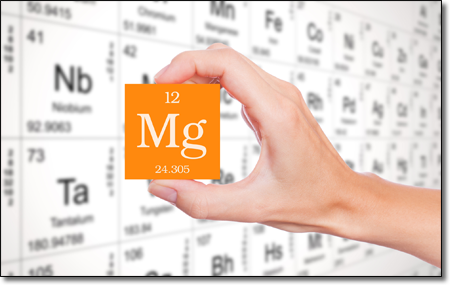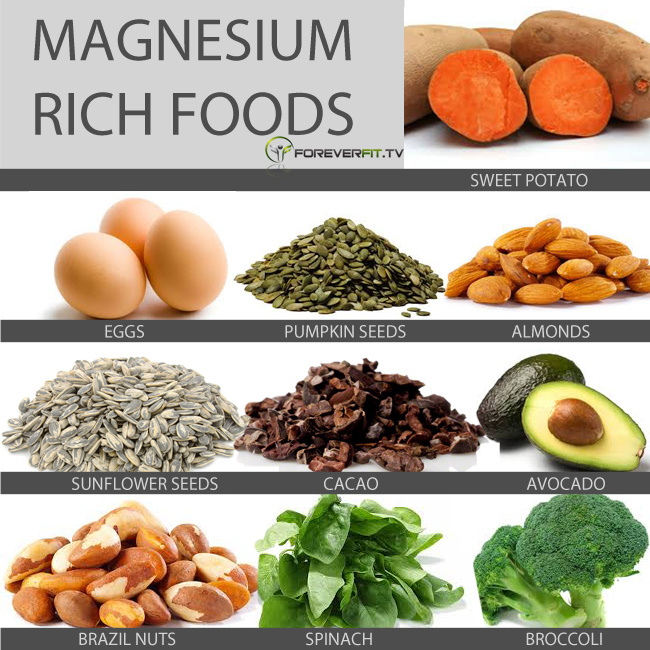Are you missing a KEY life changing supplement?
 This key nutrient activates over 300 enzyme reactions in the body, translating to thousands of biochemical reactions happening 24/7/12. Every organ in the body (especially the heart, muscles, brain, and kidneys) needs this key mineral. It contributes to the makeup of teeth and bones, activates enzymes, contributes to energy production, and helps regulate calcium levels, as well as copper, zinc, potassium, vitamin D, and other important nutrients in the body. Yet nearly 75% of Americans are deficient or severely deficient.
This key nutrient activates over 300 enzyme reactions in the body, translating to thousands of biochemical reactions happening 24/7/12. Every organ in the body (especially the heart, muscles, brain, and kidneys) needs this key mineral. It contributes to the makeup of teeth and bones, activates enzymes, contributes to energy production, and helps regulate calcium levels, as well as copper, zinc, potassium, vitamin D, and other important nutrients in the body. Yet nearly 75% of Americans are deficient or severely deficient.
Magnesium is one of my top two nutrient recommendations (next to Vitamin D) because of it’s a critical role in nerve transmission, muscle contraction, blood coagulation, energy production, nutrient metabolism and bone, and cell formation. And a new study showed that adults who consume less than the recommended amount of magnesium are 1½ to 1¾ times more likely to have elevated C-reactive protein (a well-known inflammatory marker) increasing cardiovascular disease risk.
Functional Medicine focuses on the building blocks for optimal body functioning, not just treating a symptom. If Magnesium is low.. much other major wellness (or sickness) players are affected. Nutrients are one of the 4 key tenets when you ‘Dine” with 4 Better Health.
Symptoms of deficiency
- Hypertension

- Insomnia
- Anxiety
- Constipation
- Muscle and joint pain
- Headaches
- Osteopenia and Osteoporosis
- Poor nail growth
- Restless Leg Syndrome
- Facial Tics
- Heart palpitations
So why are we so deficient?
#1. We don’t eat enough.
The Standard American Diet (SAD) is very low in foods high in Mg (green leafy veggies, seeds, nuts, avocado, broccoli, and fish) and high in foods that deplete Mg.
- Sugar – whether it comes from a candy bar, sports drink or your bagels and pastries, high glycemic diets increase the Mg export through the kidneys (see high exporters below)
- Dark soda – contain phosphates which render Mg unavailable in the body
- Coffee and Tea- Caffeine increases export of Mg (see high exporters below)
#2) Absorption.
As mentioned in prior blogs, our ability to absorb nutrients is highly dependent on the amount of stomach acid (HCL) in our stomach. This optimal pH is also necessary for magnesium to diffuse across your large and small intestinal walls.
#3) Stress.
Chronic stress depletes Mg (and a lack of Mg makes increases stress response). The stress hormones cortisol and adrenaline deplete Mg.
#4) Medications.
Medications such as diuretics, heart medication, asthma medication, some antibiotics, corticosteroids (prednisone and hydrocortisone), birth control pills and estrogen replacement therapy increase export of Mg.
Even over the counter medications such as Calcium supplements without magnesium or calcium supplements with magnesium in less than a 1:1 ratio can cause an imbalance because the Calcium overpowers Mg. According to noted magnesium researcher Mildred Seelig: “The body tends to retain calcium when in a magnesium-deficient state. Extra calcium intake at such a time could cause an abnormal rise of calcium levels inside the cells, including the cells of the heart and blood vessels… Given the delicate balance necessary between calcium and magnesium in the cells, it is best to be sure magnesium is adequate if you are taking calcium supplements.”
#5) Age and Menopause. As we age, we absorb fewer nutrients. Estrogen enhances magnesium utilization and uptake by soft tissues and bone, which may explain the resistance of young women to heart disease and osteoporosis.
#6) High Excretion rates. Your kidneys play a major role in magnesium homeostasis using a 95/5 rule: 95% is reabsorbed and 5% is sent through for excretion.
High exporters
- Diabetes mellitus. Any insulin resistance or diabetes (1 and 2) increases the kidney’s action of Mg export.
- Hyperthyroidism. An excessive amount of thyroid hormone decreases the absorption of magnesium.
- Alcohol. Whether it’s at the beach or pool party – or your nightly wine with dinner, the consumption of alcohol doubles the export of Mg.
- Gastrointestinal problems. If your gut is excreting quickly (IBS, Crohn’s, Ulcerative Colitis, etc), your bowels are dumping Mg.
- Excessive sweating. Think about those Hazy Hot Humid summer days + a beer = Mg Deficiency.
Testing your Mg.
The most common test for Mg is serum Mg. Unfortunately, if you eat any of the foods below the day before or day of the test, this level can be easily skewed to appear higher than it is. The best test is a Red Blood Cell (RBC) Mg test. As we have said before “normal’ is the level at people can function – optimal is the level at which people feel vibrant. The optimal level of RBC Mg is over 5.0.
Upping your Mg.
It’s always best to try to increase nutrients through foods. Add Mg-rich foods to your day!
- Bananas
- Avocado
- Fish
- Eggs
- Green leafy veggies (go for spinach, kale, swiss chard, basil, seaweed, etc)
- Broccoli
- Pumpkin, flax and sunflower seeds
- Brazil & pine nuts and almonds
- And yes… that delicious dark chocolate (75% cacao or higher)
Supplementation:
Mg is one of the top 5 supplements we recommend for our clients and patients (next to Vitamin D). And a little tip… if you start to supplement Vitamin D before you bring up your Mg, the D will actually deplete your Mg further.
- Most people benefit from 400 to 1,000 mg a day.
- The most absorbable forms are magnesium citrate, glycinate or taurate. Mg Citrate is best for those who are constipated. Natural calm powder 1-3tsp daily is often needed. Mg Glycinate 300-400mg is great for adding Mg for the above symptoms or if you are drinking alcohol regularly and Mg Taurate is great for insomnia at a 125-250mg dose
- Avoid magnesium carbonate, sulfate, gluconate, and oxide. They are poorly absorbed (and the cheapest and most common forms found in supplements).
- Side effects from too much magnesium include diarrhea (often avoided if you switch to magnesium glycinate)
- Most minerals are best taken as a team with other minerals in a multi-mineral formula.
- Taking a hot bath with Epsom salts (magnesium sulfate) is a good way to absorb magnesium without GI effects.
**People with kidney disease or severe heart disease should take magnesium only under medical supervision**

 “Finding 4 Better Health was a blessing after many years of traditional medicinal doctors /Endocrinologists being unable to get me to feeling optimal. Dr Zub listened to me, truly heard me & devised a proactive plan for me to have a better life. My body is still healing, but I am no longer barely functioning to get through my daily life. I can exercise again without being completely depleted of energy. I have been able to successfully lose 20 pounds. I feel I can always contact Dr. Zub with any questions or concerns I may have. We continue to work together to find the right course of action for my health. I can’t say enough great things about their practice.”
“Finding 4 Better Health was a blessing after many years of traditional medicinal doctors /Endocrinologists being unable to get me to feeling optimal. Dr Zub listened to me, truly heard me & devised a proactive plan for me to have a better life. My body is still healing, but I am no longer barely functioning to get through my daily life. I can exercise again without being completely depleted of energy. I have been able to successfully lose 20 pounds. I feel I can always contact Dr. Zub with any questions or concerns I may have. We continue to work together to find the right course of action for my health. I can’t say enough great things about their practice.”


